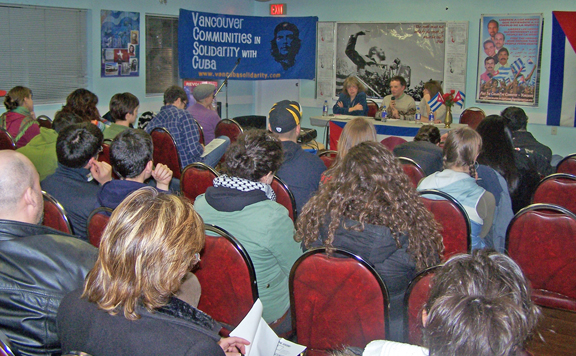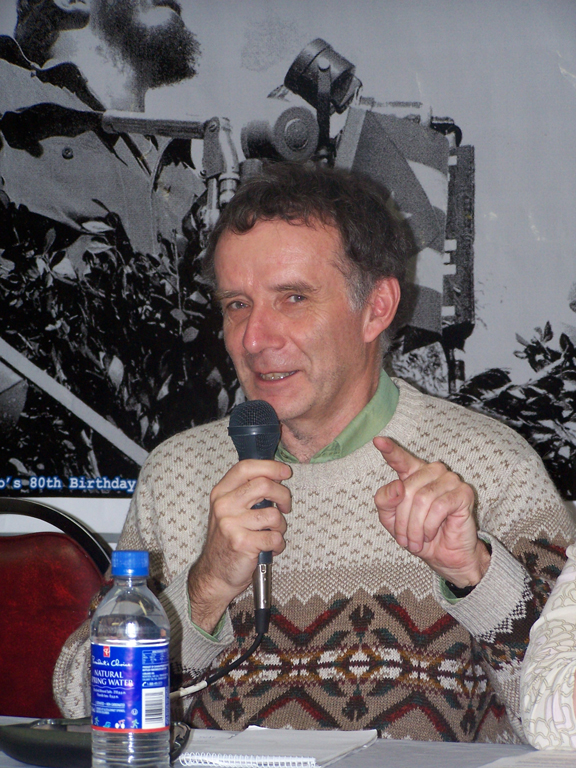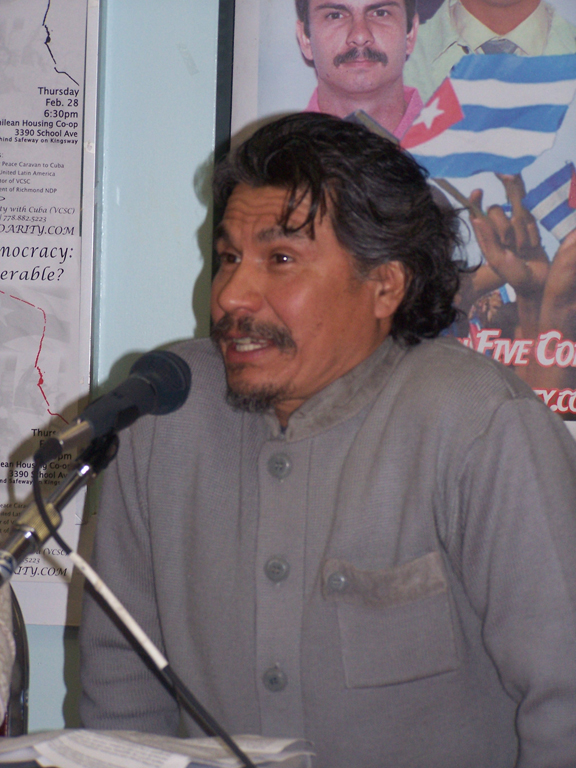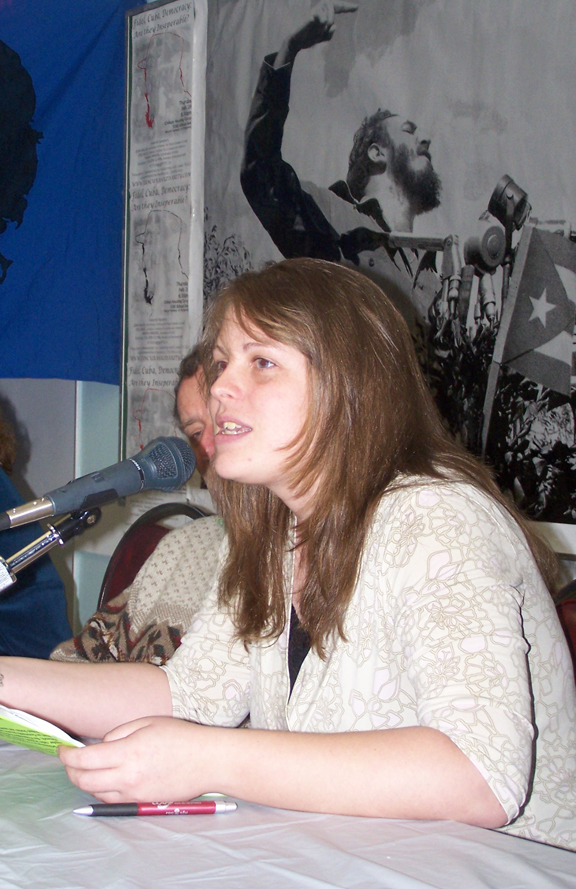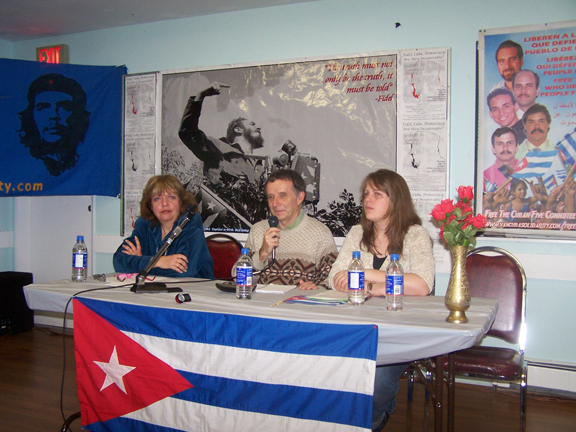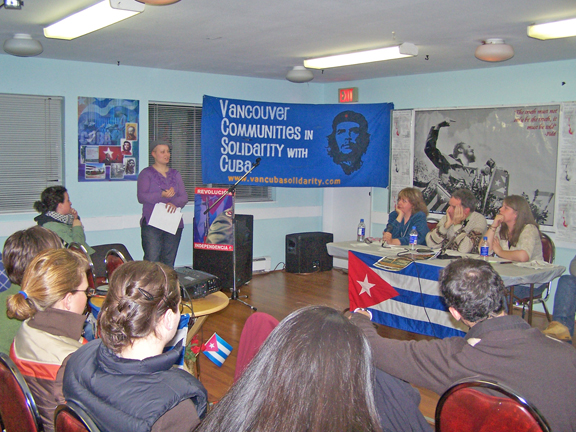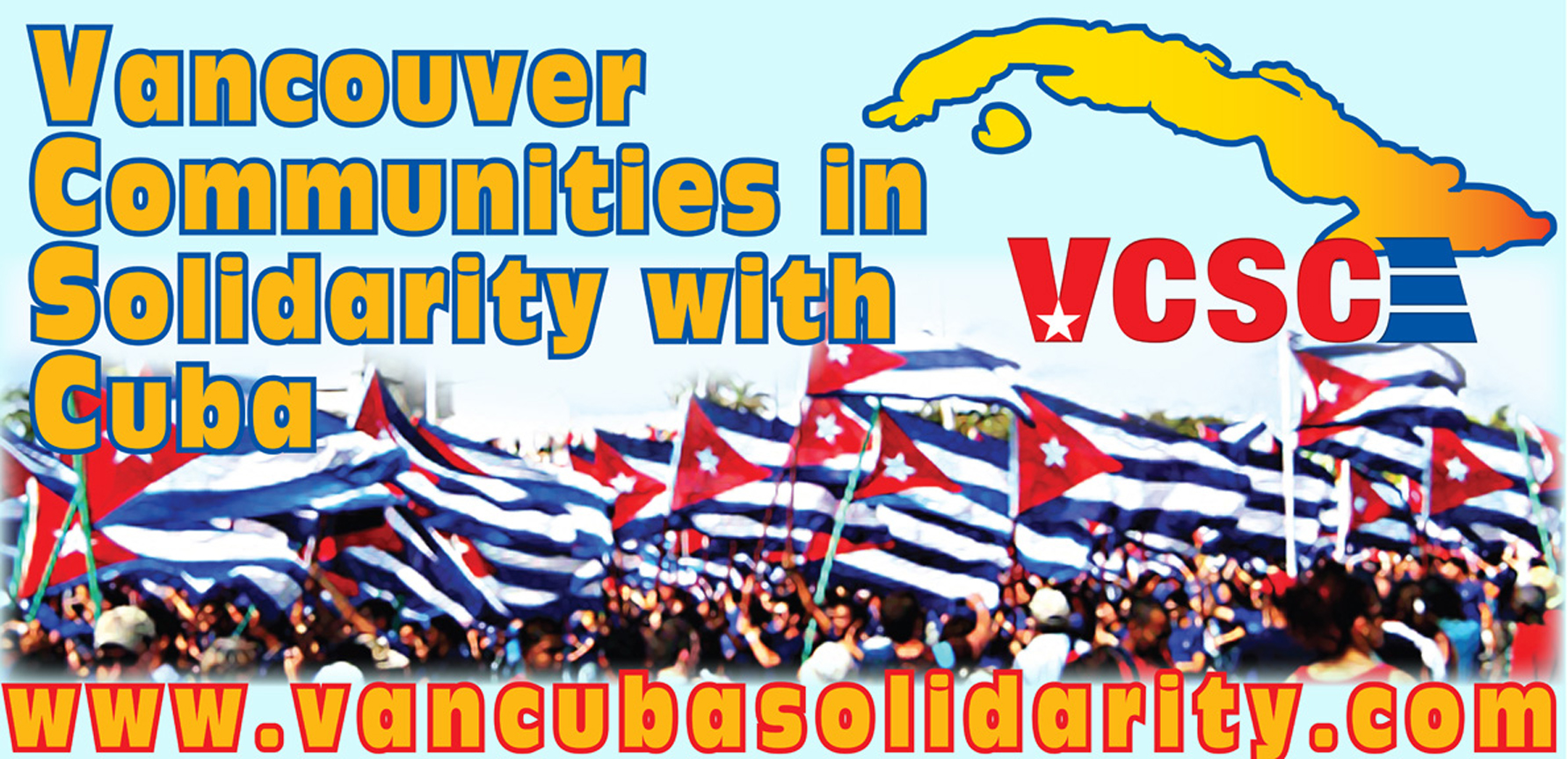




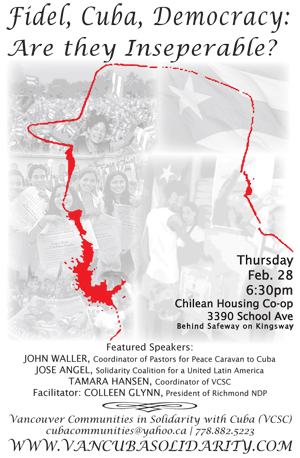
On Thursday February 28th, Vancouver Communities in Solidarity with Cuba (VCSC) organized a forum to discuss the role of Fidel in the central leadership of the Cuban Revolution, Cuba’s electoral system, the social gains of the Cuban Revolution and Cuba’s record internationally.
The evening began with Colleen Glynn, VCSC organizer and President of the Richmond NDP opening the night as MC. She first introduced the film Workers' Democracy in Cuba, to the room of over 45 people. The film showed the 17th Congress of the Cuban Workers' Federation and how Cuban workers in 1996 educated, organized and mobilized themselves to lead their country during the difficult times of the special period. It enabled people to see first hand how popular democracy works in Cuba and how regular Cubans have the ability to decide their own future.
After the film, Colleen Glynn introduced John Waller, coordinator of Pastors for Peace Caravan to Cuba. John Waller discussed the necessity of ending the US blockade on Cuba. He briefly explained Committees for the Defense of the Revolution (CDR), unions and other mass organizations in Cuba. He emphasized that, unlike what the Western media says, the majority of Cubans are not worried about what will happen when Fidel dies. Instead they are concerned with the economic problems that are a direct result of the US blockade on Cuba.
Then Colleen Glynn introduced Jose Angel, a member of the Solidarity Coalition for a United Latin America. Jose spoke from the perspective of an El Salvadoran and Latin American activist. He discussed about how Cuba represents an example of hope and necessity for a better future for humankind. That looking at Latin America we can see how through Cuba’s example there are now many progressive governments in Latin America. He also explained Fidel’s role in Cuba’s solidarity with many other struggles in Africa and the Middle East.
Then Tamara Hansen, coordinator of VCSC discussed how popular democracy and the social gains of the Cuban Revolution are interconnected. That people cannot control their own government if they are living in poverty and lacking the very basic human rights like food, health care, education and housing. Even if there is poverty in Cuba, it is fighting for essential and basic human rights. This, Tamara explained, is the vision of Fidel carrying the gains of the Cuban revolution forward.
During the discussion many members of the audience got enthusiastically involved in sharing their experiences in Cuba, with others asking further questions about the future of the Cuban revolution.
Report Back
Fidel, Cuba, Democracy: Are they Inseparable?
Click on photos to enlarge
